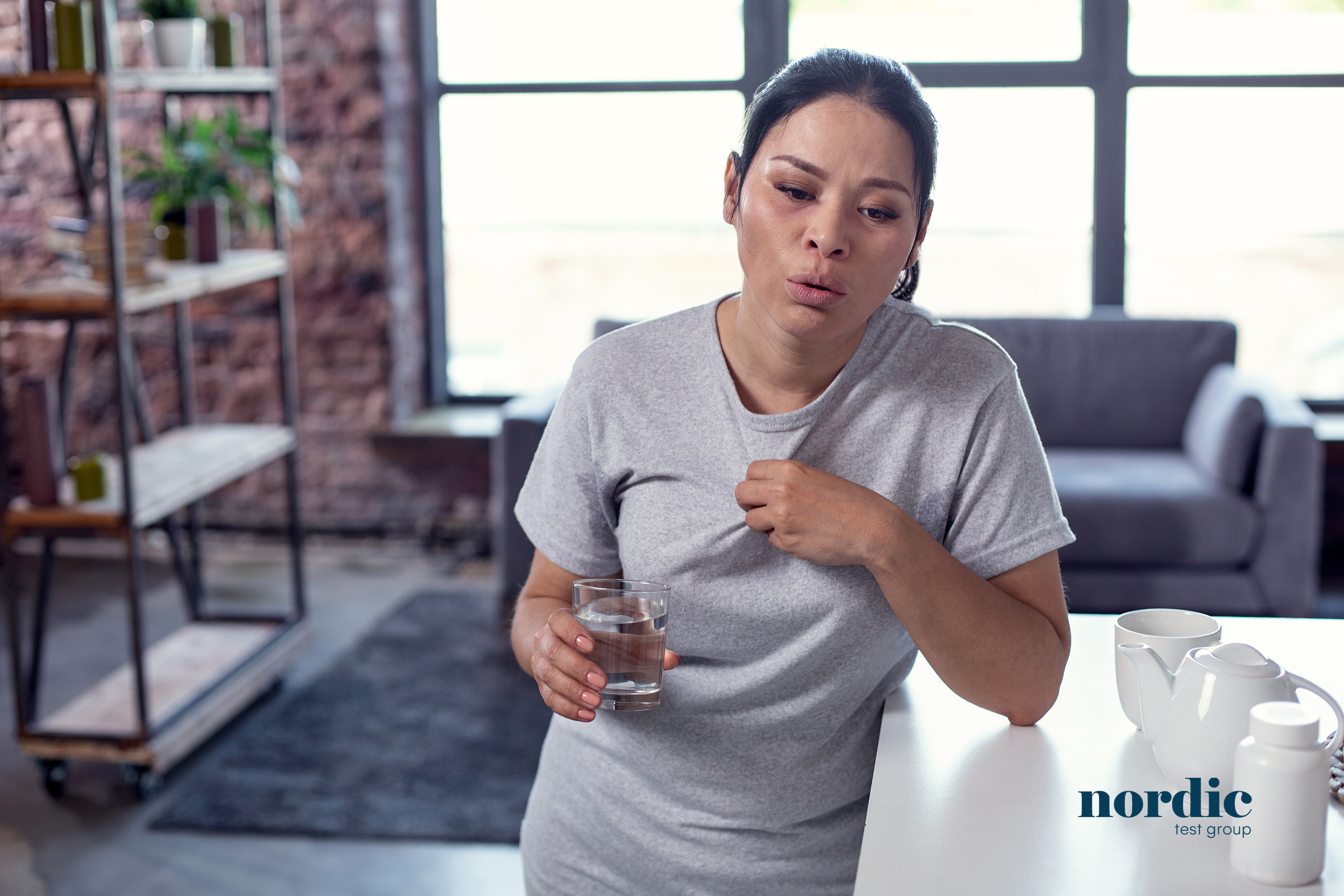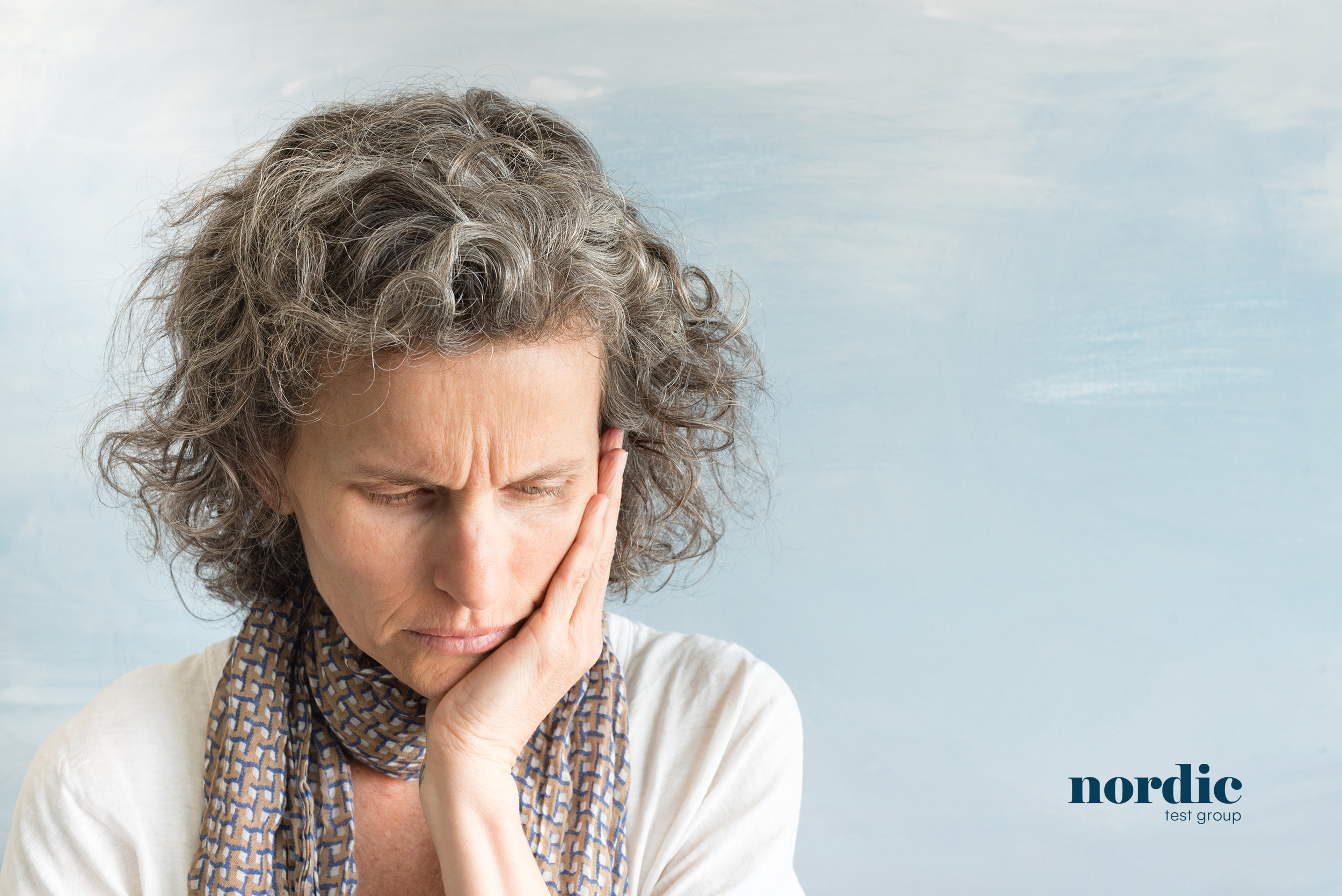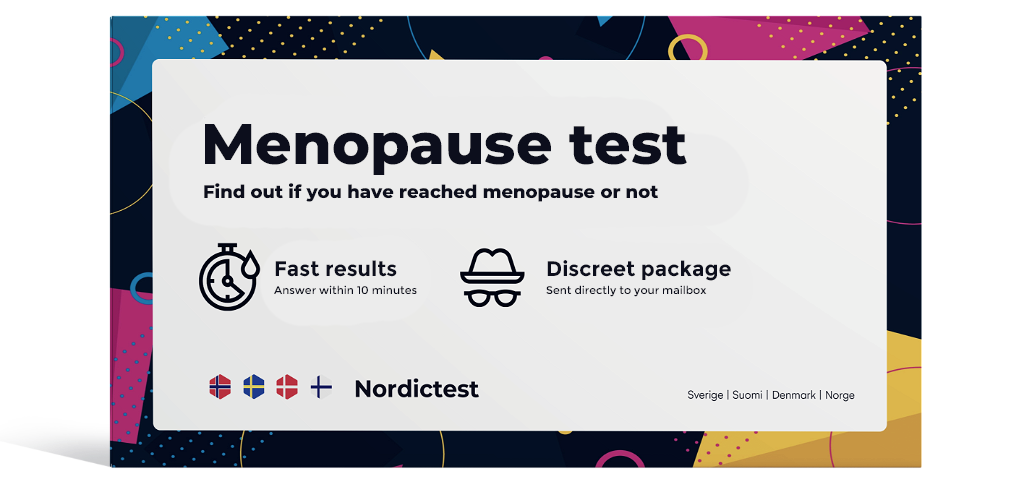How Do You Know If You're in Menopause?
Published 2024-03-24 03:54 by Nordictest
When the reproductive years are over, women undergo what we call menopause. This is a biological process that can start sometime around the age of 40 and can last for several years. The definition of entering menopause is not having had a period for 12 months.
But as many are well aware, the symptoms of menopause can occur much earlier than when menstruation has been absent for 12 consecutive months. Among our women's health tests that you can take at home, we find the menopause test, which can be a good way to confirm what you already suspect.
In addition to this, you can read on in this article where we will take a closer look at how you can know if the symptoms you are experiencing may indicate that you are in menopause.
Some Clear Symptoms of Menopause
Let's start with the symptoms and signs that are obvious clues when you're trying to figure out if you're in menopause. There are some very common reactions to the biological changes that occur when a woman leaves her reproductive years.
Clear signs include:
Irregular Menstruation
This is something that those who keep a close eye on their period notice immediately. Suddenly, menstruation skips a month only to return later. Perhaps there is a longer gap between the week when you bleed and when you don't bleed than before. Also, be aware of changes such as bleeding more or less.
If you're not entirely sure about this, it may be time to get an app to start keeping better track of your cycle. This can be a big help going forward when you may realize that you're in menopause and want to see how you can support your body during the month with the right efforts to, for example, increase hormones like estrogen and progesterone.
If you're using any form of hormonal contraception to avoid pregnancy, you must realize that this can also affect you. Consult with your doctor to see if you might need to switch methods.
Hot Flashes
Hot flashes mean that you suddenly feel very hot and start sweating or vice versa. Sweating, in particular, is very common during menopause. Despite it being a normal temperature, you feel as if it were a scorching hot summer day without a breeze.
You may sweat so much at night that you need to use bed sheets. This is normal and a fairly sure sign that you're in menopause. Nighttime hot flashes can also make it difficult for you to sleep.

However, it should be noted that sweating can occur for other reasons, of course. It's important not to make your own Google diagnosis. Always consult with your doctor to find out if there's reason to suspect other health problems before concluding that you're sweating and shivering because you're now in menopause.
Vaginal Dryness
It's also common for women during menopause to experience vaginal dryness. This practically means that the natural moisture in the vagina decreases. The feeling of this can be very uncomfortable. In addition to itching, it can also be difficult to have a normal sex life. You may not think about this, but when you realize that you're avoiding being with your partner because it doesn't feel good, it may be wise to pay attention to this symptom.
There are, of course, things to do for vaginal dryness, but try to look at the big picture of what's happening. If you make efforts that are good for your hormones, you may feel better naturally.
Sleep Problems
For those who have never had problems with sleep, sleepless nights can come as a shock. Sleep disturbances are very common during menopause. Not only because you may sweat at night. It can also be difficult to fall asleep and to go back to sleep when you wake up.
Mood Swings
If you often hear that you have a strange mood and haven't heard it before, maybe it's something to think about a little. The fact is that hormonal fluctuations during menopause can lead to mood swings, and they can be intense. You can go from being happy to feeling extreme anxiety or irritation.
Decreased Libido
It's understandable that you have less desire when you're dry down there. However, this is more about the feeling you have naturally. When you no longer long to be with your partner, it may be related to the hormonal changes of menopause.
Physical Changes
Your body can also change in a way that surprises you. There are several physical changes that can be related to menopause such as:
- Weight gain
- Changes in fat distribution
- Thinning hair
- Dry skin
- Decreased breast fullness
How Do You Get Diagnosed with Menopause?
The symptoms we've described above can thus be signs that you've entered menopause. With a test, you can confirm this. But diagnosis shouldn't be done by yourself with home tests and symptoms. It's important to get help from a doctor who understands the symptoms and who can rule out that it's not something else.
It should be noted, however, that menopause tests are not always necessary to make a diagnosis. A professional gynecologist should be able to give you the diagnosis based on your age and the symptoms you have.

How Can You Manage Menopausal Symptoms?
A great advantage of testing and confirming that it's menopause is that you can start doing the right things to manage the discomfort you're experiencing. Just being more aware of where you are in your cycle and which hormone dominates isn't a bad idea.
In other words, take your symptoms seriously and make efforts to achieve better balance. Some examples of what might help are:
Lifestyle Changes – You can start exercising, eat a better diet, quit smoking, cut down on your caffeine intake, and more. Fasting periods in line with your cycle can also be a big help.
Hormone Replacement Therapy – This may work for some symptoms during menopause such as vaginal dryness.
Alternative Therapies – You can also look into how you can find relief with therapies like acupuncture, meditation, or supplements.

